How to avoid Ticketmaster scams and spot fake tickets
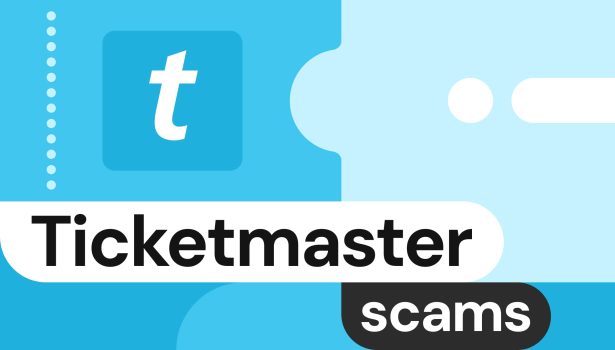
Ticketmaster has come a long way since 1976 when it was founded. Now actively used by over 110 million people worldwide, it has become a go-to destination for tickets to concerts, games, and events.
Unfortunately, this same popularity has made it a target for multiple ticket and phishing scams. From fake websites to fraudulent resellers, Ticketmaster scams are on the rise—in 2024 alone, over £1.6 million (about $2.67 million) was lost to gig ticket scams in the UK. Falling for such a scheme means not only losing money but also risking the exposure of your sensitive personal data to bad actors.
Read on to learn about the most common Ticketmaster-related scams, how to spot a fake ticket, and what to do in case if you’ve been scammed, including tips on recovering your funds.
Common Ticketmaster scams
The Better Business Bureau currently lists over 250 reported scams related to fake Ticketmaster websites and counterfeit tickets purchased from scammers, with many victims losing over $1,000 per incident. So yes, you can get scammed via Ticketmaster—not by the company itself, but by many malicious users lurking there.
Here are the top types of scams that target Ticketmaster customers or people simply looking to get that coveted event ticket.
Fake Ticketmaster websites
Scammers create fake websites that imitate Ticketmaster’s branding, colors, and interface, with only minor spelling differences in the URL (for example, ticktmaster.com instead of ticketmaster.com). These spoofed websites are designed to mislead people looking to buy tickets and often appear as top results in Google searches. Rather than providing legitimate tickets, these sites steal users’ login credentials, payment details, and money, offering fake tickets or nothing at all in return.
In some cases, fake ticket resellers create fake Ticketmaster mobile apps to trick victims into believing they’re accessing legitimate tickets in the Ticketmaster account. It can be incredibly difficult to spot a spoofed app, even if you request a reseller to record a video of the process. So if you’re not cautious enough, you’re likely to hand over your money to a scammer.
How to avoid this scam: Only use legitimate ticket resale platforms. If buying from a reseller directly on Ticketmaster, carefully check the domain URL to avoid using a fake platform.
Fake Ticketmaster customer support
In some cases, the fake Ticketmaster website scam extends to spoofed Ticketmaster customer support phone numbers. If you call, fake customer support reps may demand payments via gift cards before issuing a refund or request that you install remote device access software, as seen in AnyDesk scams.

Scammers can also set up fake Ticketmaster support agents’ social media pages, and if you post about your problem online, they may reach out to offer their “help” and redirect you to a fake customer support portal. Similar to fake Ticketmaster websites, these portals can steal your personal data and money.
How to avoid this scam: If you need assistance, use Ticketmaster’s official support channels listed here. If you simply google their support phone number, you’re likely to run into scammers.
Phishing emails and scam texts
Ticketmaster email scams and phishing texts are allegedly sent from Ticketmaster, but scammers only spoof the official phone numbers and email addresses. These messages often claim you need to take an urgent action to prevent a problem with your account and include a link you’re urged to click. That link takes you to a website or app designed to steal your Ticketmaster account credentials and payment data.
With access to your Ticketmaster credentials, scammers can hack into your account and fraudulently transfer any active tickets to their own account.
In the aftermath of a massive Ticketmaster data breach in May 2024, over 560 million users’ data records were exposed and sold on the dark web. This means scammers could access the email addresses of real Ticketmaster customers and target them with personalized phishing messages. If you suspect you may be one of those affected, read our guide to safeguarding your data after the Ticketmaster data breach.
How to avoid this scam: Check the sender’s domain (it should be strictly @ticketmaster.com) and never click links in suspicious or unsolicited emails and text messages. If you think there is a problem with your Ticketmaster account, log in directly via the official website or app to check your account status.
Scams on resale marketplaces
The number one rule to protect yourself from ticket scams is to never buy tickets from resellers on social media or resale marketplaces. In the example below, a person fell victim to a Craigslist scam—a type of fake marketplace listing that advertises non-existent items.

Typically, scammers using Craigslist or Facebook Marketplace, list overpriced, invalid, or even non-existent tickets and request payment via instant money transfer services like Zelle, Venmo, or Cash App. Once the money is sent, the scammer disappears without sending any tickets. In cases where they do send digital or paper-based tickets, those often turn out to be forged or copied.
How to avoid this scam: Only buy resale tickets through Ticketmaster’s official Verified Resale program. Use payment methods that offer buyer protection, such as PayPal Goods & Services.
Fake ticket transfers and screenshots
When “reselling” tickets, scammers often imitate ticket transferring by recording or taking screenshots of fake Ticketmaster transfers from their account. To do this, they use fake Ticketmaster websites and apps that closely resemble the official ones.
In some cases, when asked to prove their original ticket purchase, scammers will send fake Ticketmaster screenshots, again using spoofed websites and apps.
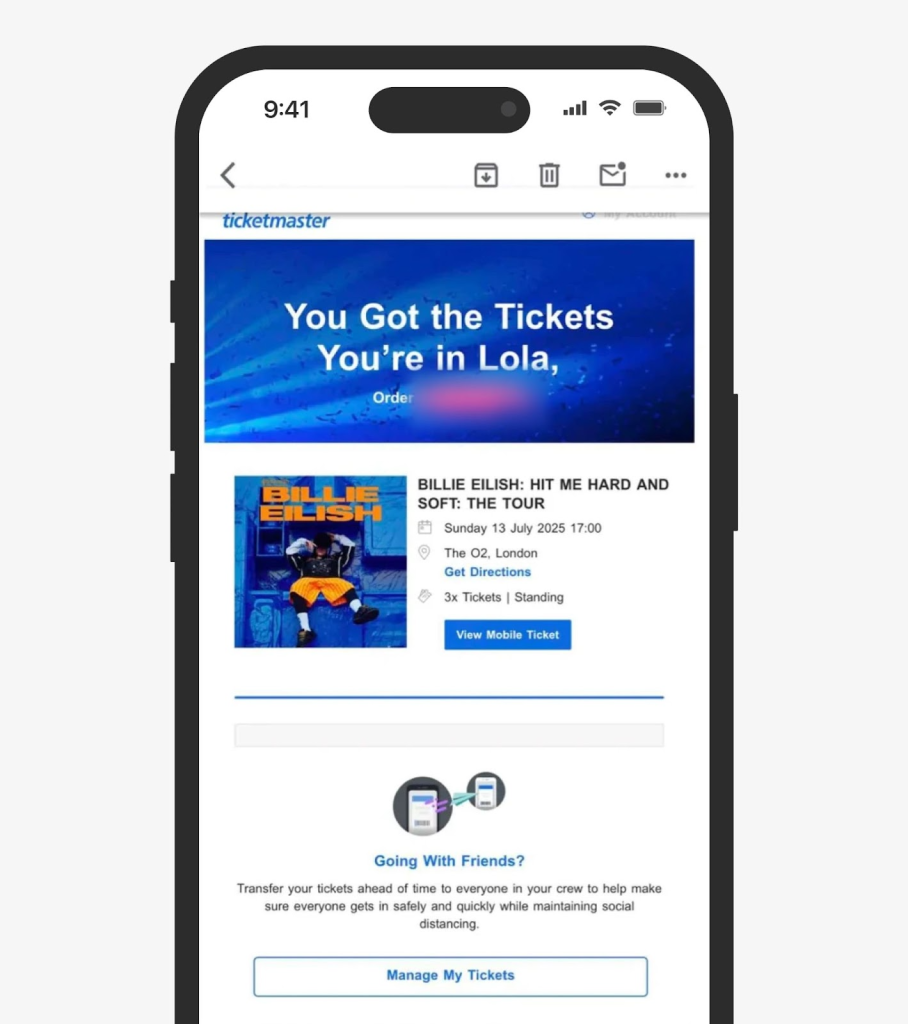
It’s worth mentioning, though, that even if a screenshot is fully legitimate and shows the reseller holding the ticket, it doesn’t guarantee that the ticket will be transferred safely to your account after payment. Scammers can also send ticket screenshots and photos of the QR code that end up being rejected at the venue because they’re fake or duplicates.
How to avoid this scam: Only accept official ticket transfers through the Ticketmaster platform (check the URL), and never accept ticket screenshots or PDFs, as these can be duplicated or forged.
Social media ticket scams
Fake ticket sellers take to Facebook groups, Twitter (X), and TikTok, advertising tickets they don’t have or even hacking other people’s trusted accounts to promote ticket resale. They typically request payments via Apple Pay, Cash App, PayPal “friends and family,” or gift cards—methods that are difficult to trace and offer minimal or no buyer protection.
To get more attention, scammers on social networks may list tickets at a very low prices, advertise “VIP” or “priority” access, or claim they have pre-sale offers before the tickets go on sale.
How to avoid this scam: Never buy tickets from strangers on social media, even if it’s very tempting to get into a sold-out event or secure early access to a ticket pre-sale.
Fake Ticketmaster agents
Social media and fan groups are populated with impersonators claiming to be Ticketmaster agents or representatives who can help you get early or priority access, or secure a ticket to a sold-out event. In reality, there are no Ticketmaster agents, as tickets are distributed digitally only, with the exception of some physical ticket-selling venues. Scammers are only looking to get your money, with no guarantee of delivering what they promise.
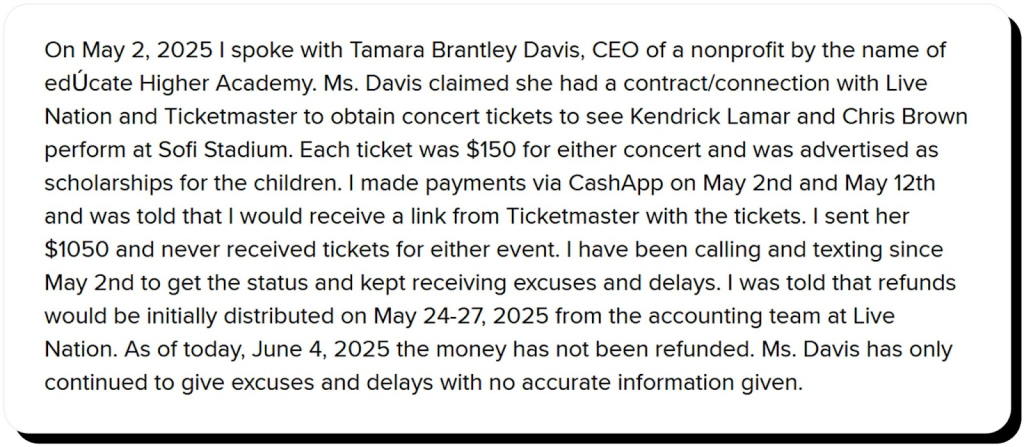
How to avoid this scam: If someone claims to be a Ticketmaster agent or says they have a connection to the company and offers to help you obtain tickets, stop your communication and move on, because it’s 100% a scam.
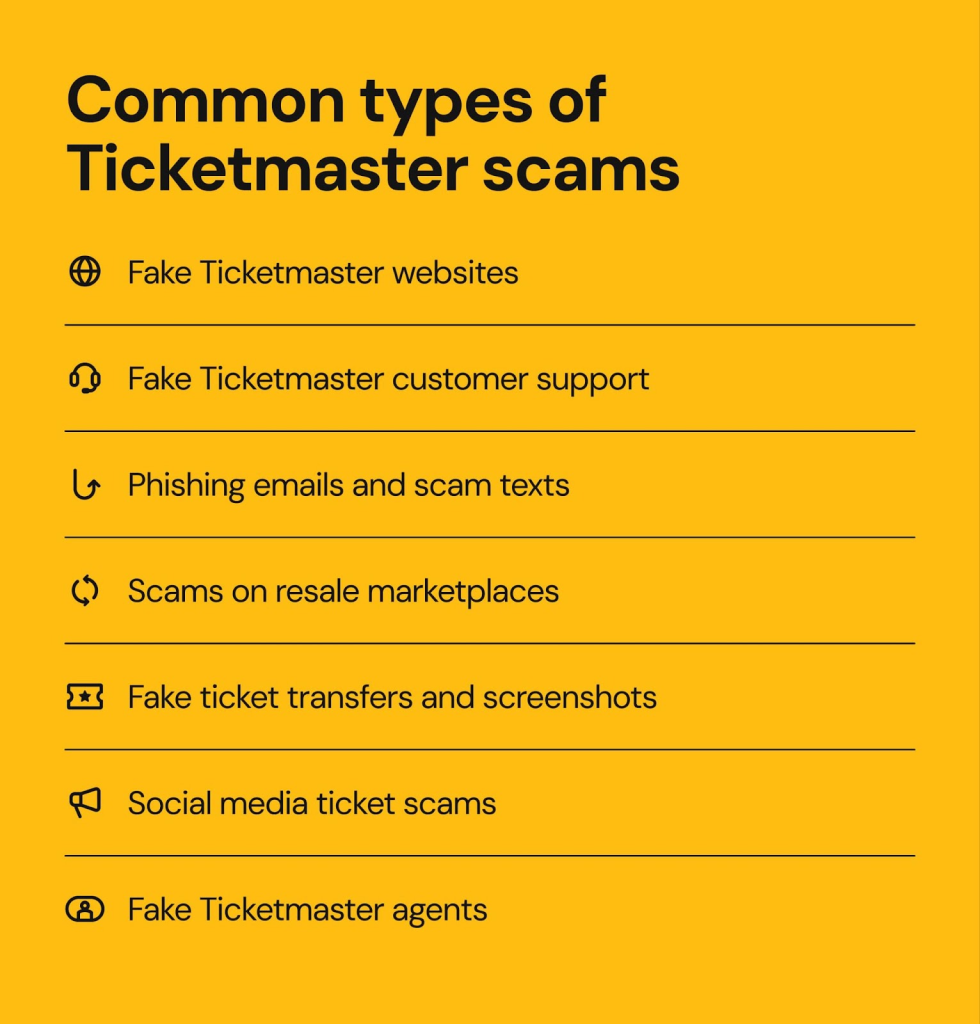
How to spot fake Ticketmaster tickets
With the rising number of complaints about fake Ticketmaster tickets, unscrupulous resellers, and spoofed confirmation emails, it’s becoming increasingly difficult to tell if a ticket is genuine. For this reason, Ticketmaster has introduced several security measures to verify ticket authenticity.
Verifying ticket authenticity
Here’s how to verify Ticketmaster tickets and ensure that you won’t be denied entry at the venue:
1. Use the official Ticketmaster app
Tickets in the official app update dynamically. QR codes may refresh or appear only a couple of hours before the event to prevent forging.
2. Check your purchase history
Log into your account using the official ticketmaster.com website or the app and navigate to My Account -> My Tickets. If the ticket isn’t listed here, it’s not real. Tickets purchased from other users through Ticketmaster’s Verified Resale program should be transferred directly to your account, as should tickets manually transferred by other legitimate users in your name.
3. Verify at the venue
Many venues now use SafeTix barcodes that refresh regularly. If your ticket displays a static barcode or is a PDF printout, that’s a big red flag. To be sure, you can check directly with the venue, where staff can confirm if the ticket is valid.
Red flags to watch out for
Here’s how to tell if Ticketmaster tickets are real by looking for these major red flags of fake tickets:
- Misspelled event titles or artist names.
- Wrong venue information or date that don’t match the official tour schedule.
- Generic or static barcodes that don’t refresh in the Ticketmaster app.
- Tickets sent as screenshots or PDFs instead of being transferred within the app.
- Resellers refusing to use PayPal Goods & Services for your buyer protection and insisting on payment via wire transfer, gift cards, Venmo, Zelle, or Cash App.
- Claims that you must pay extra to change the name on the ticket or to transfer it to your account.
- Links to the Ticketmaster that don’t match the official website domain (ticketmaster.com or its regional versions like ticketmaster.pl).
How to tell if a confirmation email is real
That said, every legitimate ticket purchase should be followed by a real Ticketmaster confirmation email. Resellers often use it as confirmation of their ticket ownership, but it’s easy to fake. So take the following precautions to verify that the email is genuine:
- Check the sender’s address: it should be sent from @ticketmaster.com.
- Look at the wording and formatting: fake emails often contain poor spelling, grammar issues, generic greetings, or stretched logos.
- Hover over links: if they don’t lead to ticketmaster.com or livenation.com, it’s a spoofed email. Don’t click any links in such emails.
- Compare with your account: if it’s a confirmation email related to your purchase, log in directly to your Ticketmaster account and check if the ticket is there.
What to do if you’ve been affected by a Ticketmaster scam
Even if you spot a scam too late, like being turned away at the venue entrance on the day of the event, you can still take the steps to limit the damage and attempt to recover your money.
Report a Ticketmaster scam
- Report the scam to Ticketmaster as soon as you discover it via the company’s official support channels.
- If you received a phishing email, forward it to [email protected] along with your phone number to alert Ticketmaster’s team.
- If you transferred money to the scammer, contact your bank or payment card provider to block the transaction or initiate a dispute.
- File a fraud report with your local consumer protection agency, such as the FTC or the Better Business Bureau in the U.S.
Recovering your money after a Ticketmaster scam
Recovering your money lost in a Ticketmaster scam is not always easy or straightforward, but it’s not entirely impossible.
If your Ticketmaster account was hacked and someone fraudulently transferred your tickets to their account, or a fraudulent ticket transfer took place for any other reason, it may be possible to cancel it with the help of Ticketmaster customer support. Users report difficulty getting through, but calling their official phone number 1-800-653-8000 may expedite the process.
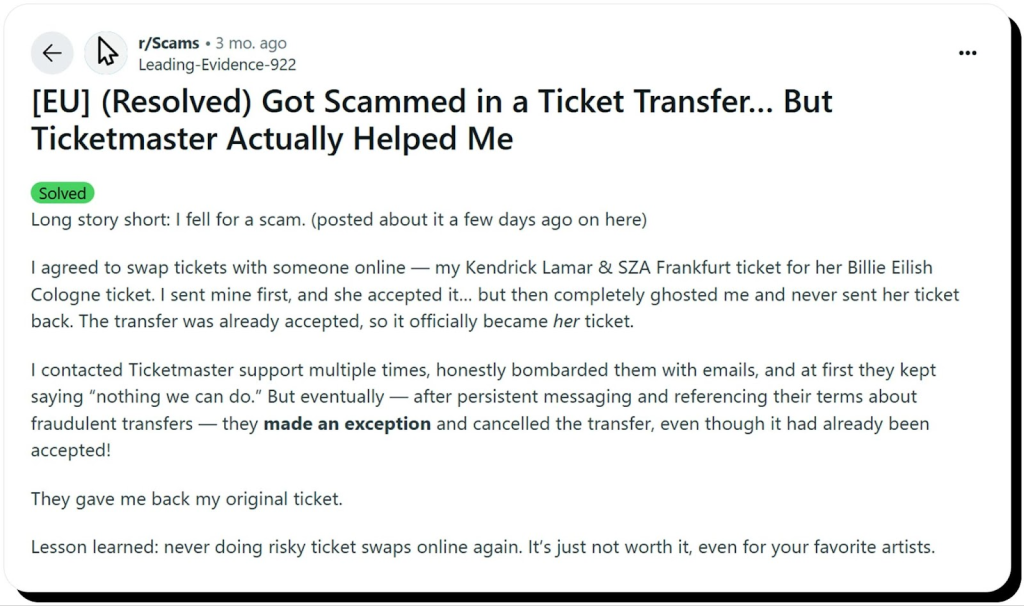
Additionally, you can seek out funds recovery by:
- Requesting a chargeback of the transaction if you paid with a credit card.
- Using your official fraud report to refund fraudulent charges through your bank.
- Disputing the transaction if you used a payment method that offers buyer protection, such as PayPal Goods & Services.
Is it safe to use Ticketmaster’s resale platform?
One of the safest ways to buy resale tickets is through Ticketmaster’s own Verified Resale feature. Any user who can’t make it to the event can list their ticket for sale, with the transaction and ticket transfer handled by Ticketmaster for added safety.
This guarantees that the resold tickets are legitimate, as Ticketmaster verifies their authenticity automatically. If there’s any problem, Ticketmaster will refund or replace the tickets.
It means you should never agree to off-platform deals or use third-party resale websites or social media to source event tickets, as this can expose you to ticket fraud.
FAQs
Does Ticketmaster sell fake tickets?
No, Ticketmaster sells only genuine event tickets made available by event organizers. Fake tickets are typically sold by unreliable resellers on third-party resale platforms, social media, and Ticketmaster lookalike websites run by scammers.
Can you get scammed on Ticketmaster resale?
The risk of scams is very low if you use Ticketmaster’s Verified Resale feature, which protects buyers and transfers tickets directly into their accounts, invalidating other copies. However, you can get scammed if you purchase resale tickets outside Ticketmaster or through social media.
Will Ticketmaster refund me if I’m scammed?
If you bought the ticket directly on Ticketmaster using the Verified Resale program, you’re covered by the Fan Guarantee, and your ticket will be refunded or replaced. If you bought your ticket off-platform or on a fake version of the Ticketmaster website, Ticketmaster won’t be able to refund you.
Can someone fake a Ticketmaster transfer?
Yes, it’s possible to fake a Ticketmaster transfer using a spoofed version of the official website or app. In some cases, scammers also use fake transfer screenshots. Only accept transfers within the official Ticketmaster website or app, and don’t trust screenshots or PDFs.


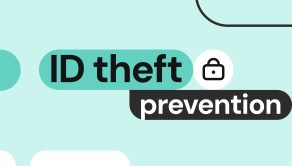

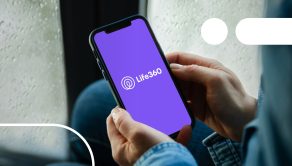
Dimitri is a tech entrepreneur and founder of Onerep, the first fully automated data removal service. Top cybersecurity CEO of 2021 by The Software Report.